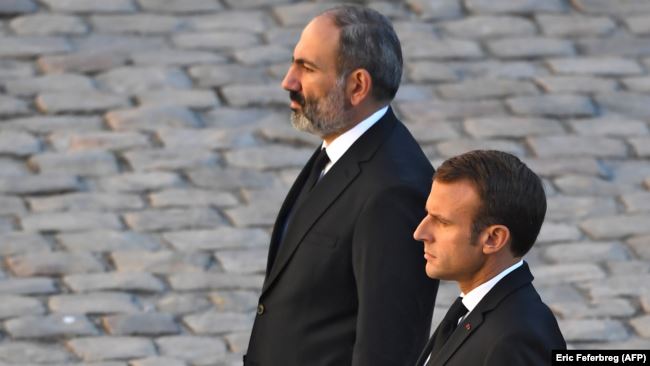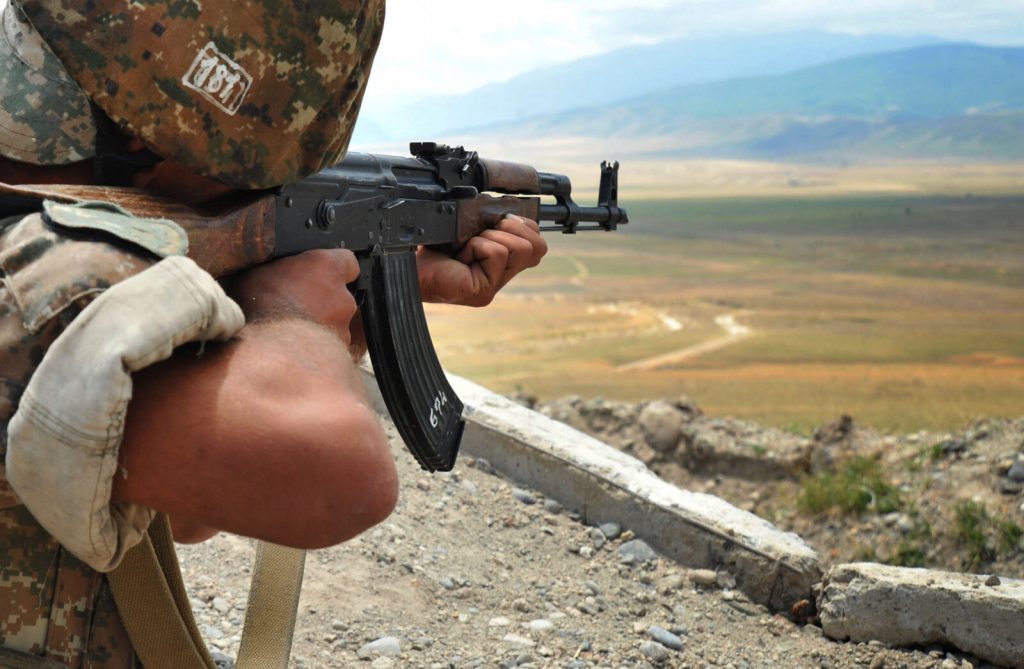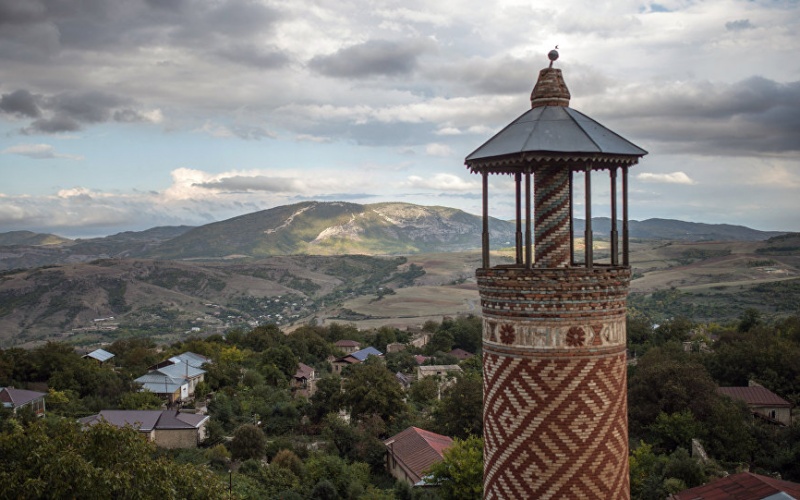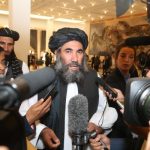Nagorno Karabakh peace deal opened the way for Russia to have boots on the ground in the South Caucasus by deploying peacekeepers. It practically echoed the 1992 scenario when puppet Transnistria was established. Russia’s peace deal froze the conflict, actually, as part of Nagorno Karabakh remained separatist, and the territorial integrity of Azerbaijan was not restored. This reflects Moscow’s interests and its desire to legalize Karabakh as a state under Russian narrative of establishing puppet regimes in the separatist areas.
In October 2020, during the offensive by Azerbaijan’s army, Moscow political TV programs pushed forward with the idea Russia should recognize the “independence” of Karabakh without delay, as the only way to save the Armenians of Karabakh from military defeat.
After that, Prime Minister Nikol Pashinyan of Armenia, in a telephone conversation with French President Emmanuel Macron, said it was critical to recognize the self-proclaimed Nagorno Karabakh Republic. There is no doubt, therefore, the initiative to recognize Karabakh comes from Moscow, as Armenia itself has not recognized Artsakh since it was established.
On December 1, 1989, the parliament of the Armenian Soviet Socialist Republic made a decision to annex Nagorno Karabakh. On January 10, 1990, the Soviet leaders issued a resolution “On the unconstitutionality of the act on Nagorno Karabakh” adopted by the Armenian parliament, and emphasized it directly violated Article 78 of the Soviet Constitution.
Modern Armenia recognizes itself as legal successor for the Armenian SSR, and keeps its decisions in force. Thus, to proclaim Nagorno Karabakh as a state, Armenia needs to resolve the issue of unconstitutionality of 1990 Soviet Armenia parliamentary act, which is impossible over the breakup of Soviet Union.
As anindependent state, Armenia cannot recognize Karabakh, therefore, as it will contradict the boundaries of the Soviet republic, the UN recognized in 1990.
It would not be legal to recognize independence then, as it will come into collision with the international principle of non-altering the state boundaries unilaterally.
That is the reason why Armenia itself and Russia have not recognized Artsakh since 1990.
The peace deal undermined Russia’s logic in the decision to recognize Karbach. The recognition of Artsakh was viewed initially as one of the ways to protect the Armenians. But Russian peacekeepers deployed and the territory the ethnic Armenians left with the offensive by the Azerbaijan army went back to Azerbaijan, thus the recognition of Karabakh is wrong-headed, useless and contradicts the international law.
The Kremlin is now trying to take advantage of the situation to realize some objectives:
– to preserve Karabakh as a puppet area with military footprint by Russia, though controversial and put on hold by its state legitimacy.
– to deteriorate France-Turkey relations yet more.
– to make a test case for the legal altering of boundaries unilaterally.
Russia lost its gray areas around the NKR, but it is a matter of time now to return all occupied areas to official Baku. Maia Sandu, who won presidency in Moldova, said in the first days after the vote it was necessary to withdraw Russian troops from Transnistria.
Karabakh’s defeat in the war jeopardises other puppet projects by Russia in Ukraine, Moldova and Georgia. Moscow, defeated in the Nagorno Karabakh conflict, cannot afford to lose authority and efficient control over the area that remained.
In an effort to legalize Karabakh, the Kremlin turns to French political figures, involved by Moscow (e. g., Bruno Retailleau), so that the resolution to recognize the Nagorno Karabakh Republic would be submitted to the French Senate for vote.
The Kremlin actively involves French political figures, using them to further its interests, legalize its activity that undermines good global practice and raises up new neo-imperial test cases. They also assist in placing the issues on the EU and NATO agenda that add to decentralize these organizations, undermine the effect by international sanctions, as well as boost the far right political movements in European states, using them to put pressure on Paris.
Leader of the National Front (National Association now) Marine Le Pen, for example, got 11 million euros as support by Russia in 2014.
The decision to recognize the Nagorno Karabakh Republic by the Senate might blow to the reputation of France as the UN Security Council permanent member. Such decision by Paris, after all, will accord partial immunity to Karabakh. For Azerbaijan, this will mean its efforts to renew its territorial integrity are blocked. Such decision will also become a test case, indirectly legalizing the separatist areas and giving them a signal to ramp up. For Paris, these risks are especially dangerous in view of Corsica.
Еhe French parliament has to assume the responsibility that will lie on France and its inefficiency. This step will additionally cripple the development of relations with Muslim world, unhappy with Macron’s line toward Muslims in France.
This step is pursued further, however, in order to beef up the ratings by pro-Russian MPs of France ahead of local and presidential vote there and to be backed by high-powered and large Armenian diaspora in France ahead of the presidential vote in 2022.
The Kremlin is likely to involve the high-powered Armenian Orthodox diaspora in France to put the screws on the French Senate, so that Paris would recognize the independence of Nagorno Karabakh, thus triggering another heat between France and Turkey and Azerbaijan, as well as with the rest of Muslim world.
Russia, therefore, sets sights on lasting standoff in the Atlantic community based on religion, in order to restore its influence in the Caucasus, as well as to keep on roiling inside the EU, so that far right Moscow-friendly groups would sweep to power throughout the Western world.







